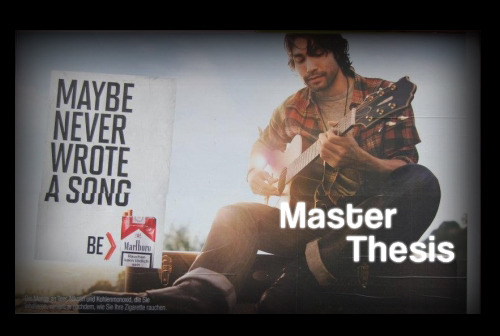Dear Edgeryders, I just ended a 5 months paper in which I tried to think how we could take care of the commons that are the attention capacity and the desire capacity, following Bernard Stiegler’s extensive works on the subject. I tried to apply this thinking paradigm to its greatest threat: marketing. Coming from a business school but miraculously still endowed with a capacity of caring for the commons, I hope that it would help some to structure your thinking on the subject. I’m watching further to read your feedbacks!
http://maxlath.eu/#16523478807

Abstract
Marketing, as the organization of attention capture and motivation canalization, that is to say the diverting of the social energy that is desire as analyzed by Bernard Stiegler, is at the heart of the social and economic system that is questioned by the post-2007 crises and the experience of system limits. Marketing’s shared history with the consumerist culture, the controversies on business responsibility and the downfall of counterforces that are national states and social institutions in the context of globalization, contributed to blur the limits of ethic in marketing practices. While limits thin down, marketing practices found new fields of technical improvement through the development of behavioral sciences, constitutive of a psychopower, immoderately use to tend toward ubiquity; not only aiming direct sells anymore but also working on the symbolic level for the sake of branding. Those immoderate practices lead to a form of exhaustion of marketing’s raw material: attention and desire. This systemic analysis of marketing’s impacts would lead to the sketching of an alternative system of information, valuating responsibility regarding the commons, including the psychic and collective well-being.
Finite?
Hello Max,
I have not read the thesis and I don’t know much about marketing. What struck me in your abstract is that you consider desire a scarce resource, for which marketers compete with, say, religious leaders in a zero-sum game. Are you sure about that? From what I hear, desire is endlessly regenerating itself - and indeed marketers have been able to create needs that were completely unanticipated before they came into being. No one could predict that round-the-clock access to Facebook would become a heartfelt social need, so much that parents punish unruly teenagers by withdrawing it. By implication, you should not be able to exhaust desire, though you can (and marketers do) direct it towards anti-social activities.
Potentially infinite desire vs desire diverting and destruction
Thank you Alberto for your comment,
Desire is not a zero-sum game for sure, desire is the production of a psychic appartus described by Freud as a “libidinal economy”, that is to say the ability of humans to transform the psychic energy that are drives into the social energy that is desire, which is by essence infinite. This transformation is what Freud calls the sublimation or the idealisation of drives. This is the exceptional faculty of the human spirit to invest its energy in order to extend its power of being - in Spinozian terms - its capacity to individuate itself, to become who he or she is - in Simondonian terms. There is no zero-sum game on this resource because there are huge dynamics of desire creation - that we have now to understand as a capacity to invest our psychic energy in a social structure - for example the Edgeryders movement that empower and connect doers and, as such, is a wonderful manufacture of desire, and dynamics of desire desctruction, the destruction of the social energy for which one of the most gross example is “Real” TV, where children and teens are told to behave in regressive, non-caring ways, in ways that are socially desinvesting. The problem of marketing is that the promotion of a non-caring way of life is highly complementary with an immorderated form of consumerism, which for long extensively contributed to high profits as the psychic appartus was highly understood, especially since Bernays works on Propaganda: to leave this situation where businesses are interested to practice a form of marketing that end by the destruction of the social energy of psychic individuals, we have to reshape the way goods are socialized.
If you want to go straightly to the point of desire, I encourage you to start by reading this manifesto: Manifesto 2010 | Ars Industrialis
Best regards
Hmm
I actually did read the Freud-Bernay part of your thesis. 
Ok, if this is the thing, then the whole “depleting common resource” discourse is a misfire. You don’t need that, as the manufacturing of desire for, say, the iPhone5 does not inhibit other kinds of desire. The (social) problem with marketing might be not that it exhausts desire, but that it manufactures too much of it, and misdirect it so that we have to exhaust the planet’s resources to make more iPhone5s, 6s, … ns.
for sure there are happy consumers, I’m a consumer, trying to be moderate but still, and I feel pretty happy on average, but there are also what Stiegler calls “human wasteland” due to consumerism cf the article The Disaffected Individual in the Process of Psychic and Collective Disindividuation
